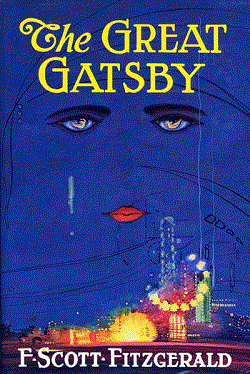By: Naveen Varathan
Relation to Course
Throughout the course the issue of adultery has frequently come up. In the novel Death of a Salesman by Arthur Miller, the protagonist Willy Loman has an affair while on a business trip to Boston. During a conversation after Biff's discovery of Willy's affair, Willy exclaimed, "She’s nothing to me, Biff. I was lonely, I was terribly lonely." (Miller 89). Willy conceded to what he had done, reasoning that the cause for his affair was because he felt alone. Many people also have this same perception, and find it in themselves to make excuses so that they do not feel lousy about their actions. In many cases like Willy's, one's dissatifisfaction in their sex life through marriage, may result in them cheating in order for their desires to be fulfilled.


In the novel The Great Gatsby by F. Scott Fitzgerald, several characters who are married decide to have affairs; Daisy, Tom and Myrtle. Nick Carraway, the narrator of the book, describes Tom Buchanan as an unscrupulous man: "The fact that he had one [a mistress] was insisted upon wherever he was known. His acquaintances resented the fact that he turned up in popular restaurants with her and, leaving her at a table, sauntered about, chatting with whomever he knew." (Fitzgerald 27). Tom cheats on his wife Daisy with Myrtle who is another wedded woman. Also during the novel, Tom notices that Daisy and Gatsby have a connection and he correctly assumes that she is having an affair with him (Fitzgerald 116). All these infidelity's that take place are caused by each person's disatisfaction in their marriage. For whatever reason for this feeling to arise, they see as having an affair as an immediate solution to the issue they face. Instead of communicating to try and solve the problem at hand, they, like many other people in the world, choose to go the easy way and have an affair in order to forget about their marital issues.